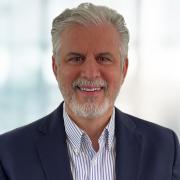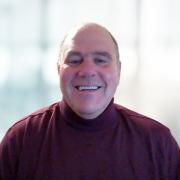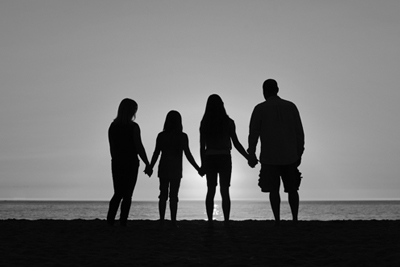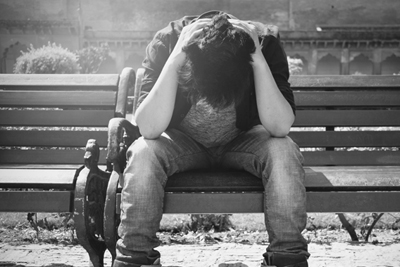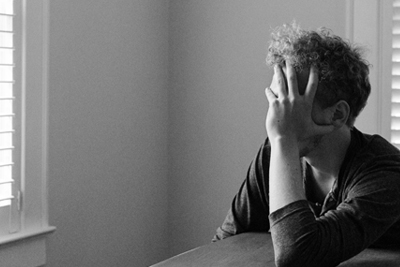Addiction Medicine
Often used to mask other diagnoses, addiction is a problem with the potential for serious consequences. Seasoned and credentialed professionals offer RCBM's outpatient addiction treatment services in a caring, confidential, and non-judgmental environment.
At the Rochester Center for Behavioral Medicine, we offer an innovative multidisciplinary treatment approach to recovery. Our program has been developed through years of experience working with clients who have multiple addictions. Recent discoveries in addiction science have expanded our understanding of addictions and their impact on the human brain. We have combined our years of experience with cutting-edge discoveries in neuroscience to provide highly effective treatment for our patients. We have dedicated clinicians who provide medication management along with individual psychotherapy by our certified advanced alcohol and drug counselors.
Do not wait for the legal system to make treatment mandatory. At RCBM, we encourage you to acknowledge responsibility and voluntarily seek treatment. Addictions are life-threatening concerns, and we are here to help.
Aliya Pasik, PA-C, Program Director, Addiction Recovery Clinic, discusses the RCBM Addiction Medicine Program at RCBM.
Addiction Medicine FAQs
What is an addiction?
Continuing to use a harmful substance or engaging in destructive behavior despite knowing its consequences can have serious implications. Repeated abuse of substances can result in the pruning of neural pathways in the brain that are responsible for experiencing joy and happiness. Subsequently, your brain and body become accustomed to the repeated cycle of seeking a "high."
When you hear the word “addiction,” you may think solely of drug and alcohol dependency. However, substance abuse is not the only type of addiction. An addiction is formed whenever a habit turns into an obligation.
Process addiction refers to the compulsive urge to engage in certain behaviors or activities, such as gambling, internet use, or video games. It is a real condition that can have harmful consequences, just like substance addiction. While there are similarities between process addictions and substance abuse, there are also key differences in terms of symptoms, effects on the body, and treatment options.
Someone who frequently abuses substances may experience physical withdrawal symptoms, abnormal heart rate, psychotic episodes, or body pain due to the chemicals present in the substance they have consumed. or body aches due to the chemicals in the substance they have taken.
Process addiction is distinct from substance addiction as it does not affect the body in the same way. Since there are no chemicals involved, the symptoms of process addictions are behavioral in nature. Such symptoms include losing focus on work or school, damaging relationships due to a significant amount of time spent on the addiction, and a lack of desire or ability to do anything except engage in the process. Furthermore, process addiction can also cause an inability to focus on work or school and lead to a loss of relationships due to the time spent on the addiction. Other issues include the inability to focus on work or school, a loss of relationships due to time spent in the process, or a lack of desire or ability to do anything but their process.
How do I know if I have a problem?
If you notice difficulty in your relationships, your work, or your finances, that may be a sign you have a substance use disorder. If you feel bothered by people telling you that you need to cut down or take risks to obtain a high reward, those are also signs that you need help.
How do addictive substances and processes impact my body, mood, and my life?
Alcohol: Alcohol is also known as Ethanol, or ETOH, in medical terms. When alcohol is consumed, receptor sites in the brain are upregulated, acting like holes, asking to be filled with more alcohol. That is what causes a craving. When you consume alcohol, your brain releases a substance called GABA, or Gamma Amino Butyric Acid, which is your “keep calm” hormone. It also keeps your brain stable. When you drink alcohol, it releases GABA, making you feel calm. However, after such a large release, your brain is depleted, often leaving you feeling more anxious than when you started. When you add these aspects together, you can see how they lead to addiction. Over time, the constant depletion of GABA can lead to seizures.
Withdrawal: Withdrawal from ETOH can cause tremors, hallucinations, seizures, Delerium Tremens, coma, and death. The detoxification window for this is between 48 hours after stopping and up to 21 days after use ends. This is why alcohol detoxification must be done only with the guidance of a trained professional.
Benzodiazepines: Benzodiazepines are a class of drugs, also known as Z drugs. They contain Alprazolam, Lorazepam, Clonazepam, and Diazepam, among many others. They all have various uses and are best used in the short term. Patients get into trouble when prescribed an increasing amount when their initial dose’s effectiveness decreases over time. Benzodiazepines work by releasing GABA in the brain. GABA is the brain’s “keep calm” hormone and one of its main stabilizers. The constant use of Benzodiazepines in high doses depletes the brain’s GABA. This can cause seizures when they stop, especially if they stop abruptly. If a person has been at a certain dose over a period that exceeds what is safe, we will always recommend inpatient detoxification. A benzodiazepine withdrawal causes seizures, coma, and death. Safety is always the top priority.
Cannabis: Cannabis is perceived to be harmless because it produces neither overdose of fatal withdrawal. It is now legal and socially acceptable, making it even more unclear about its use. People all have an endocannabinoid system, the human body’s way of relieving pain and discomfort. Using cannabis affects our endocannabinoid system.
Cannabis is a drug that is classified as hallucinogenic. Although it does not cause hallucinations in everyone, it has the potential to do so under certain conditions. While it can provide temporary relief from hyperactivity and mania, the relief is short-lived and can lead to a larger rebound situation, prompting more cannabis use. When patients with bipolar disorder use it, they may experience temporary relief, but it can also lead to hallucinations, delusions, and paranoia, which is known as psychosis. This can also occur outside of a bipolar or schizophrenia diagnosis when used with stimulants. Stimulants can be either prescribed or obtained through caffeine, nicotine, or cocaine.
If you have a psychiatric diagnosis, avoidance of cannabis is the best policy.
Cocaine: Cocaine is another drug that mimics the effects of dopamine differently from opiates. It produces a feeling of power and euphoria in its users. The effects on the heart are notable immediately and over time, as it is extremely taxing on the heart muscle.
This drug is often used in patients who have undiagnosed ADHD, as it can provide energy, focus, and motivation during early use.
It is commonly abused by patients who suffer from bipolar disorder or major depressive disorder. In Bipolar patients, it can shift a patient from a depressive state into a manic state. In major depressive disorder, it can provide temporary relief from depression but rapidly leads to agitation and anxiety.
Kratom: Kratom is a plant that comes from parts of Asia. It behaves like an opioid in that 22 of the 35 chemical compounds attach to the Mu receptor in the brain. It is legal and available at smoke shops and gas stations. Many people have used it to attempt to come off opiates. It can cause typical opioid withdrawal syndrome and has been known to cause seizures upon withdrawal if usage has been lengthy or from a high dose. Use over time leads to insomnia and tremors.
Opiates: Opiates attach themselves to the Mu receptor site in the brain. They mimic the effects of your brain’s dopamine so closely that it signals your brain to stop making dopamine. Opiates, however, do not function in the brain the way native dopamine does, therefore the longer you take them, the more your own dopamine is depleted, setting you up for an increased need over time. Since dopamine is associated with joy, focus, and energy, the depletion of it over time causes physical pain, anxiety, and depression. Opiates lower your body’s drive to breathe. When a person overdoses, they stop breathing.
Long-Term Consequences of Opiate Use: Opioid Hyperalgesia is a condition that develops over time with regular use of opiates. It causes chronic aching pain in the joints and muscles around the body. It also causes poor focus, lack of energy, and brain fog. It is often confused with Fibromyalgia, which is a condition that produces similar sensations in the body and mind. When patients with Fibromyalgia are treated with opiates, Opioid Hyperalgesia often develops, worsening the condition. Opiates are not the correct treatment for fibromyalgia.
Withdrawal: Withdrawal from opiates is not fatal, but it can be a serious and intense experience. Symptoms of opiate detox may include a runny nose, yawning, pain, nausea, vomiting, diarrhea, restless legs, depression, agitation, and insomnia. The severity of these symptoms depends on the amount and duration of opiate use. Suboxone, a medication used to treat opiate addiction, has a longer half-life than heroin or painkillers, which can result in a longer post-acute withdrawal phase. This phase is characterized by symptoms such as poor focus, brain fog, restless legs, and insomnia due to the amount and duration of the substance used.
Psilocybin, LSD, DMT: These hallucinogenic drugs are often used in an attempt to reach greater peace, spirituality, or understanding of the universe. They can produce hallucinations because they affect the dopamine in the Optic Nerve, where your eyes and brain meet to process sight. Mushrooms are perceived as safe, because they are “natural,” but can affect the brain's ability to distinguish reality from dream states. This can lead to a variety of injuries or accidents.
The use of LSD or DMT can cause a permanent condition called HPPD, Hallucinogen Persisting Perception Disorder. This condition is permanent and causes hallucinations at various times without using the drug. It does not respond to anti-psychotic drugs the way hallucinations of Bipolar or Schizophrenia respond.
Gambling: Television now bombards people with options for online casino-style gaming. The legality and the availability of gambling make it a temptation for people who lack dopamine, as the thrill of winning elevates dopamine quickly.
Sex/Pornography Addiction: Those who are addicted to sex are often seeking a spike in dopamine. It is most seen in attention deficit hyperactivity disorder and bipolar disorder. ADHD is so highly stimulating that a person who lacks dopamine will be more prone to the rapid rise that sex or pornography can provide. In bipolar disorder, a manic state can produce feelings of hypersexuality.
Shopping:
Shopping addiction is a type of behavioral addiction that involves an uncontrollable urge to buy things as a way to feel better and avoid negative emotions like anxiety and depression. Like other behavioral addictions, shopping addiction can become an obsessive preoccupation that can cause problems in other areas of your life.
What are the underlying conditions that lead to alcohol abuse?
Attention Deficit Hyperactivity Disorder (ADHD):
One of the most common triggers for alcohol abuse is ADHD. Undiagnosed and, therefore, untreated ADHD causes more than just inattention or hyperactivity for many patients; it can prime patients for addiction. ADHD is associated with a dopamine deficiency in the brain's pre-frontal cortex, where thinking, judgment, and decision-making reside. It is not just the brain’s stimulant but also the brain’s joy. Without it, your body compensates by releasing more Adrenaline, also known as the Fight or Flight Hormone. It can feel terrible, so a GABA (Gamma-Aminobutyric Acid) releaser like GABA often provides short-term comfort and long-term difficulty. GABA regulates nerve cell activity and has a calming effect on the central nervous system.
If you lack dopamine, you may crave “Dope.” If taking an opiate increases your level of energy, that may be an indication that you have undiagnosed ADHD. Many people do not realize that they are deficient in dopamine until they have surgery and experience an opiate. For these patients, at first, it may seem like a cure for anxiety, inattention, racing thoughts, and lack of energy. It is short-term relief with an excessively big rebound effect. That is how many people become addicted following an injury or surgery.
Bipolar Disorder:
Opiates often provide a sedating effect for patients with bipolar Opioids can have a sedating effect on bipolar disorder patients; however, they can cause similar complications as ADHD, as the artificial dopamine may deplete the natural dopamine.
Bipolar Disorder is also a risk factor for alcohol addiction. The highs and lows of bipolar also make people tend to gravitate toward a drug that releases GABA.
Generalized Anxiety Disorder:
This condition is partly caused by a deficiency of serotonin, also known as the calm, happy hormone. People who lack this chemical tend to be calmed by the immediate relief they feel upon the release of GABA. Still, the rebound of anxiety is so high that it becomes even more challenging to resist the urge when the anxiety returns.
Major Depressive Disorder:
This condition is also known as one partly driven by a lack of serotonin and other chemical mediators. It tends to provide instant relief of the pain of suffering by the temporary numbing effect it provides, yet it is the most powerful depressant drug available by legal purchase. The rebound effect of alcohol on depression is so severe that the constant pursuit of numbness becomes the goal.
Other Conditions:
Alcohol is often used as a form of self-medication for various conditions such as post-traumatic stress disorder, obsessive-compulsive disorder, schizophrenia, and schizoaffective disorders, which can cause individuals to seek to numb memories, ease compulsions, and hide hallucinations.
Additional Information:
Alcohol renders anti-psychotic drugs ineffective, and no anti-depressant can overpower its effects. Additionally, alcohol can worsen depression and trigger suicidal thoughts.
What is the treatment for addiction?
The treatment for addiction is personalized for everyone based on their unique needs. The first step is to diagnose the underlying cause of addiction accurately. Diagnostic tests are important for identifying the root causes of self-medicating. No one becomes addicted if they are happy, healthy, and whole. Treating the underlying diagnosis is essential for preventing a relapse. However, some medications can help reduce cravings, regardless of the underlying psychiatric diagnosis. Treating the underlying diagnosis is key to preventing relapse, but some medications work to help reduce cravings, that work regardless of the underlying psychiatric diagnosis.
Inpatient or Outpatient Detoxification: This determination is always made on a case-by-case basis. If a person has ever had a seizure of any kind, they must detox at an inpatient facility. If a person has certain pre-existing health conditions or has been using a substance copiously or over an extended period, inpatient treatment may be necessary.
Acamprosate: This is used exclusively for alcohol abuse and works similarly to naltrexone
Antabuse: This drug is used for alcohol abuse. It produces a sickening effect when alcohol is consumed. Flushing, nausea, vomiting, and racing heart are all common effects when alcohol is consumed while on Antabuse. This acts as a deterrent for relapse.
Naltrexone: This is the oral alternative to vivitrol. It must be taken daily for the best results. It can be used for opiates or alcohol relapse prevention.
Suboxone:
Suboxone is a drug that is used for the Stabilization of Opioid Addiction. It contains both buprenorphine and naltrexone. Buprenorphine is a long-acting opiate, and naltrexone is a blocker for opiates. When taken together, it can prevent a fatal opiate relapse by reducing cravings but blocking any feeling of being high. This enables patients to regain function in a situation where they do not feel ready for an opiate detox. At RCBM, we attempt to taper patients off this drug as quickly as possible to live an opiate-free life. Suboxone is highly useful to ease the symptoms of opiate withdrawal and is easiest to come off when patients use it briefly. We also have extensive skills in tapering patients off suboxone who have been on it for extended periods of time.
Vivitrol: This is a once-monthly injection that goes into the hip. It blocks the effects of opiates and alcohol for 30 days. If you relapse, you will not get drunk or high. It reduces cravings by resting in the alcohol or opiate receptor sites, quieting the brain into thinking it has gotten what it is craving. It allows the brain to heal much faster than by sobriety alone. If a person uses enough of the substance they have been abusing, they can overcome it, but that is less common.
Talk Therapy: This is an essential piece of any recovery. Overcoming addiction requires patience, accountability, honesty, and self-respect. Talk therapy provides the skills to obtain and maintain sobriety.
Medical Nutrition Therapy: Medical Nutrition Therapy involves addressing the impact of alcohol and illicit drug use on the body's ability to absorb nutrients, which can lead to nutrient depletion. These substances also tend to suppress appetite, increasing the risk of severe dehydration and vitamin deficiencies. It is crucial to be aware of these risks and take measures to avoid them. for malnutrition. Our registered dietitians can help you achieve an optimal diet to prevent these problems.
How effective is addiction treatment at RCBM?
Effective treatment for addiction is now available. Thanks to innovative discoveries in addiction science, treatment for addictive disorders has come a long way. At RCBM, we utilize cutting-edge treatment protocols for the benefit of our patients, making lasting recovery within reach!
How do I get started in the addiction program at RCBM?
If you are a current patient at RCBM, please contact our office at (248) 608-8800. If you are new to RCBM, you can initiate the admission process by completing a new patient registration form. Once you submit the form, we will match you with one of our qualified prescribers and therapists specializing in addiction treatment and one of our registered dietitians. Please note that individuals must be residents of Michigan and willing to visit the office if necessary. We are committed to helping you throughout your recovery journey and look forward to working with you.
Related Video
Addiction TreatmentAliya Pasik, PA-C, Program Director, Addiction Recovery Clinic discusses the RCBM Addiction Medicine Program at RCBM and how we can help.
Addiction Medicine Professionals
Joel L. Young, MD, Medical Director
Read More
Aliya Pasik, PA-C
Read More
David Price, MA, LPC, CAADC
Read More
Judith C. Redmond, LPC, LLP, CAADC
Read More
Julie Staples MA, LPC NCC
Read More
Lisa Robinson, MA, LPC, CAADC
Read More
Related Services and Programs
Read More
Read More
Read More
Read More
Read More


